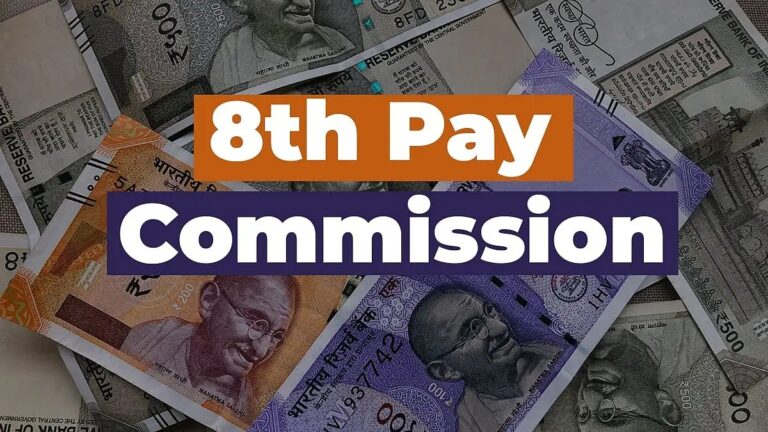
Central Government Employees Await Salary Revisions Amid Pending Notifications
The 8th Central Pay Commission, approved by the government in January 2025, remains in limbo as the official notification has yet to be issued. This delay has sparked discussions about potential salary adjustments for approximately 45 lakh central government employees. While the government has sought inputs from key ministries and states, the appointment of the commission’s chairman and members is contingent on the release of the formal announcement. The Finance Ministry’s Pankaj Chaudhary assured lawmakers that the notification would follow due process, emphasizing that the final terms of reference are still under review. This uncertainty has left employees and unions in limbo, with many anticipating significant revisions to their compensation packages based on economic indicators and inflationary pressures.
Current Salary Structure Under the 7th Pay Commission
Under the 7th Pay Commission, central government employees receive a minimum basic salary of Rs 18,000, while pensioners are entitled to a minimum basic pension of Rs 9,000. The fitment factor of 2.57 under this commission has resulted in a revised salary formula: Revised Salary = Basic Pay × Fitment Factor. This approach has been instrumental in recalibrating pay scales across various posts, with apex positions like the Cabinet Secretary earning up to Rs 2.5 lakh per month. The 6th Pay Commission had previously set the entry-level salary at Rs 7,000, with a cap of Rs 80,000 for the highest positions. These historical benchmarks provide context for the potential revisions expected under the 8th Pay Commission.
Fitment Factor and Salary Hike Calculations
The 8th Pay Commission’s proposed salary revisions hinge on the fitment factor, a metric that determines the percentage increase in basic pay and pensions. Experts predict a fitment factor range of 1.8 to 2.86, which could translate to salary hikes between 12.5% and 78.75% for central government employees. This calculation includes both basic pay and Dearness Allowance (DA), which currently stands at 55% under the 7th Pay Commission. For instance, a minimum basic salary of Rs 18,000 combined with a 60% DA could result in a total monthly income of Rs 28,800. However, excluding DA, the actual increase could be as high as 186% at the upper end of the fitment factor range. These projections highlight the potential impact on both current employees and retired pensioners.
Historical Salary Increases and Future Projections
The 7th Pay Commission marked a 14.30% increase in salaries, including DA, compared to the 54% surge under the 6th Pay Commission. Previous commissions also saw significant hikes: 31% under the 5th, 27.60% under the 4th, 20.60% under the 3rd, and 14.20% under the 2nd. These historical data points underscore the government’s evolving approach to wage adjustments, balancing inflationary pressures with fiscal constraints. The 8th Pay Commission is expected to follow a similar trajectory, with experts suggesting a fitment factor that could bring about a substantial boost in employee remuneration. However, the exact figures remain speculative until the official notification is released, leaving stakeholders in anticipation of a comprehensive review of their financial benefits.
Implications for Employees and the Government’s Fiscal Strategy
The anticipated salary revisions under the 8th Pay Commission will have far-reaching implications for both employees and the government’s fiscal strategy. While higher salaries could improve living standards and morale, they also pose challenges in maintaining fiscal discipline. The government must balance these adjustments with inflation control and budgetary constraints. The delayed notification has raised concerns about the efficiency of bureaucratic processes, but it also allows for a more thorough review of economic data. As the commission’s recommendations take shape, the focus will shift to how these changes align with broader economic goals and the well-being of public sector employees.



